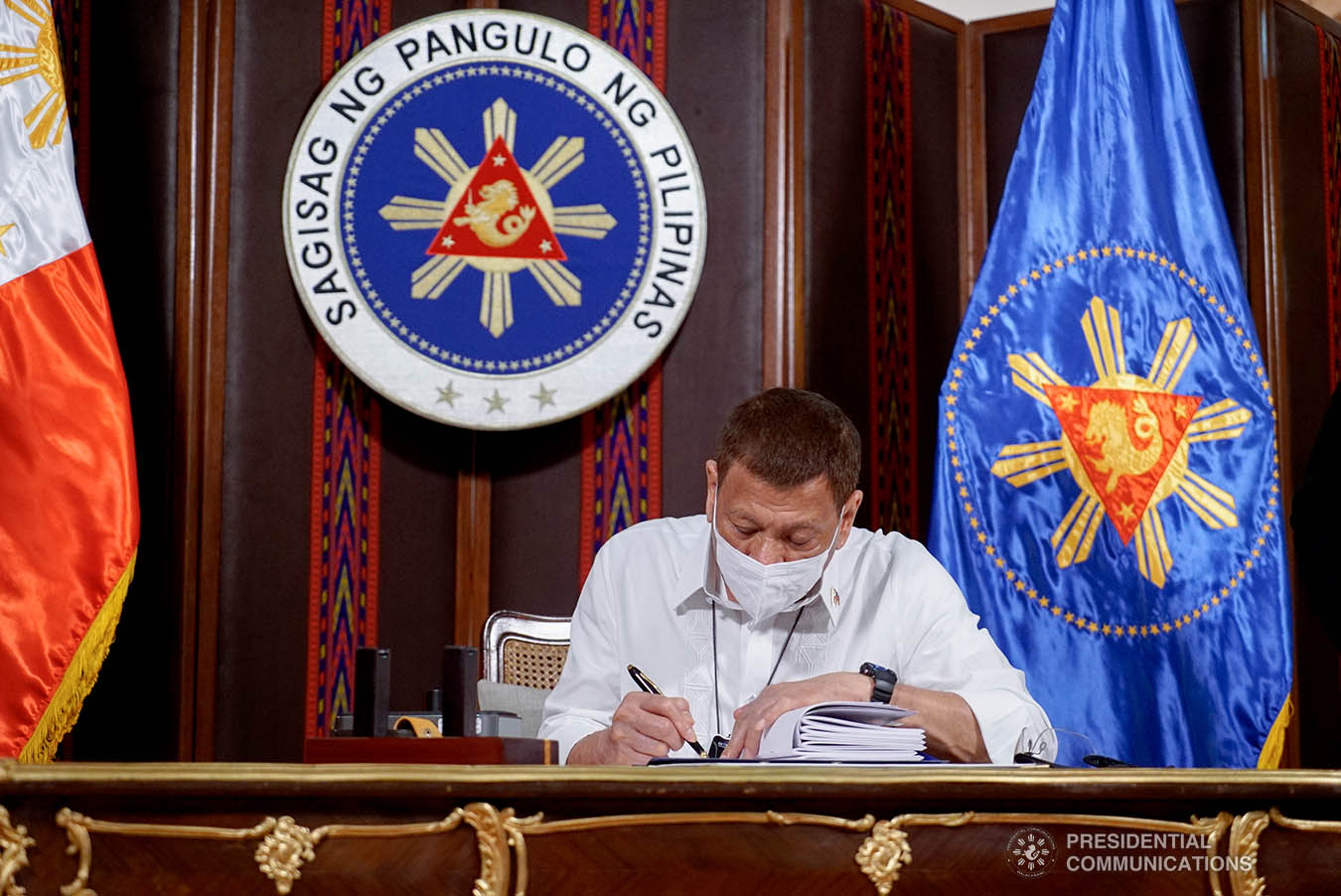News
Duterte okays add’l budget to register more people in PhilSys

President Rodrigo Roa Duterte signs into law the Bayanihan to Recover as One Act (Bayanihan 2) during a ceremony at the Malago Clubhouse in Malacañang on September 11, 2020. KING RODRIGUEZ/PRESIDENTIAL PHOTO
MANILA – President Rodrigo Duterte has approved PHP3.52 billion in additional funding to register 20 million more individuals in the Philippine Identification System (PhilSys) by the end of 2021, Malacañang said Wednesday.
Presidential Spokesperson Harry Roque said the 20 million more people to be registered under PhilSys would be on top of the government’s 50-million target.
“President Rodrigo Roa Duterte, together with the members of his Cabinet, approved the PHP3.52-B additional budget for 2021 to register 20 million more individuals (on top of the 50-million target) to the Philippine Identification System (PhilSys) by the end of 2021, as presented by Acting Socioeconomic Planning Secretary Karl Kendrick Chua,” Roque said in a statement.
The government targets to provide about 92 million Filipinos with the national ID by the end of June 2022.
Last November, the Philippine Statistics Authority (PSA) began collecting demographic data from targeted low-income Filipinos in 664 cities and municipalities in 32 provinces identified as “low-risk” areas for the coronavirus outbreak, among them Ilocos Sur, La Union, Pangasinan, Cagayan, Isabela, Bataan, Bulacan, Nueva Ecija, Pampanga, Tarlac, Zambales, Batangas, Cavite, Laguna, Quezon, Rizal, Albay, Camarines Sur, Masbate, Antique, Capiz, Iloilo, Negros Occidental, Bohol, Cebu, Negros Oriental, Leyte, Compostela Valley, Davao del Norte, Davao del Sur, Davao Occidental, and Tawi-Tawi.
The PSA earlier said registration of all households will be made starting January 2021 through the help of local government units, partner-agencies, and other stakeholders.
Of the nine million individuals to be included in the initial batch of national ID registrants, five million are low-income household heads while the rest are adult household members.
The demographic data that will be asked by the survey enumerators include full name, sex, date of birth, place of birth, blood type, permanent and present address, and whether the registrant is a Filipino or a resident alien.
Optional questions are marital status, mobile number, and e-mail address.
Signed into law in August 2018, Republic Act 11055 or the PhilSys Act, aims to establish a single national ID for all Filipinos and resident aliens.
The national ID shall be a valid proof of identity that shall be a means of simplifying public and private transactions, enrolment in schools, and the opening of bank accounts.
It will also boost efficiency, especially in dealing with government services, where people would only need to present the ID during transactions.
Last April, Duterte said the PhilSys would have fast-tracked the distribution of emergency relief to indigent families under the national government’s Social Amelioration Program (SAP) during the Covid-19 crisis.
One of Duterte’s marching orders to acting National Economic and Development Authority (NEDA) acting Secretary Karl Kendrick Chua in April was to hasten the implementation of the PhilSys Act.
The PSA is mandated to lead the PhilSys, with support from the PhilSys Policy and Coordination Board chaired by the NEDA and composed of various government agencies.

